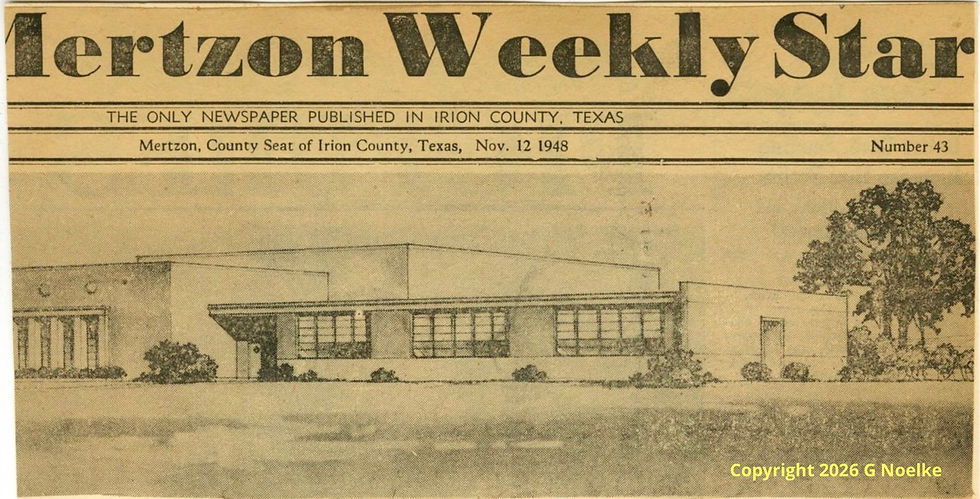2024 State Flood Plan
- G. Noelke
- Jun 21, 2024
- 2 min read

I have submitted the following comments to the draft 2024 State Flood Plan. The time to leave comments on the draft, June 17, 2024, has passed. The deadline for the final Plan is September 1, 2024.
This draft 2024 State Flood Plan leaves out one important source of flooding: state and local government. From improper design of state highways to the excessive creation of impervious structures by local school districts, private property owners statewide must be vigilant to prevent stormwater runoff originating from state and local government infrastructure and capital improvements. This problem is only going to worsen as our state population continues to expand, thereby causing increased government growth and worsening climate conditions.
The bedrock constitutional principle that the government can’t take private property without first paying for it is not always recognized by government leaders. Stormwater runoff from government property onto private property has long been ruled in our courts as an unconstitutional “taking”. Yet, one can readily find instances at all levels of government where officials have taken or are in the process of taking private property illegally by “inverse condemnation”.
Even the Texas Private Real Property Preservation Act (Texas Government Code Chapter 2007) is readily dismissed by government decision makers. One of its provisions requires a “takings impact assessment” that, if used by government officials, could go a long way to reducing the impact of stormwater runoff from government owned property. In other words, laws already exist that are intended to prevent inverse condemnation. Reform is no doubt needed, but the foundation exists.
The final 2024 State Flood Plan should make clear that state and local governments are obligated to consider all applicable constitutional, statutory, administrative and local laws to protect private property from stormwater originating from government property. Thus, as a broad policy objective, the final plan should openly affirm the right of private property owners to be free of governmental takings in that context. The final Plan could thereby be used as a communication tool to educate and remind government leaders that taking of private property by our state and local government is unlawful.
I'll update this page once I receive a response. I’m not expecting much of a substantive response, however. If there’s anything I’ve learned in these 8+ years of advocacy, it’s that government leaders are not inclined to tackle the issue of how their own decisions are contributing to the problem. Still, our state’s hyper growth and accompanying climate change I think are reason enough for the pushback in my comments above. See also my post on Devillier v Texas about how state leaders are misrepresenting their progress on property rights and flooding. That post in part informs my view that Texas state and local government are, if not outright hostile towards private property rights, certainly not always deserving of their pro private property rights reputation.
Copyright 2024 G. Noelke





